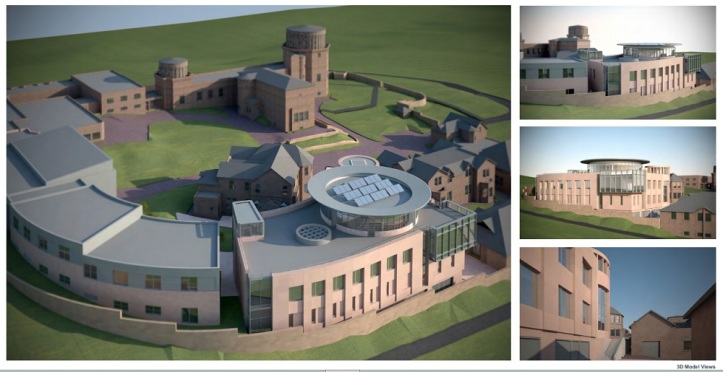To start at the beginning, as you might know my main research is in innovation form (basic) natural sciences and its commercialisation in the form of spin-outs and entrepreneurship. My specific field is Space Technologies here in the UK and in Scotland, so I look at emerging technologies ranging from satellite hardware to the use of the expertise developed in large telescopes for designing medical devices, such as Retinal Densitometer.
My research is tied in with the development of a new Space-related business incubator in Edinburgh, the Higgs Centre for Innovation. The expected growth of this sector is part of a wider UK government’s initiative to grow the UK’s share of the global Space Sector to 10% by 2030.

As such, a major part of my work will be the evaluation of past and present incubation programmes, to learn about their effectiveness and suggest examples of good practice. This work is done in collaboration with my research partners, the Science and Technology Facilities Council (STFC), who are launching the said new incubator and who run frequent impact evaluation exercises to justify the investment of public funds and bid for further funding allocation.
I have worked on some impact evaluation previously, for example I have recently written a summative report about the impact of CERN (the European Organisation for Nuclear Research) on science in general and on the UK economy and society in particular, spanning the first 60 years of its operation (up to 2014), which is partially included in a chapter of the last STFC Impact Evaluation Report (2014).
However, while impact evaluation frameworks in the context of science and technology policy are well developed (see STFC example), I have come to realise that their methodology is less so and that there is little available literature to easily form a new coherent approach to this topic (Autio, 2014; Zuijdam et.al., 2011; Markman, Siegel and Wright, 2008). Crucially, most methodological discussions included in the impact evaluation exercises that I have been drawing upon, often focus solely on econometric parameters and their calculations, rather than discussing any holistic framework of evaluation or any of the qualitative or comparative methodology.
Hence, I am looking at programme evaluation elsewhere to cross-reference the methods I encountered in my past research with the well developed theories of policy evaluation in social sciences, in particular concerning social policies and to come up with a rounded impact evaluation logic. Even though my past and present impact evaluation is about research in natural sciences and its impact on the socio-economic situation in the UK, many themes emerging from social policy evaluation match directly the ones I encounter(ed) in my research.
